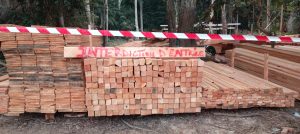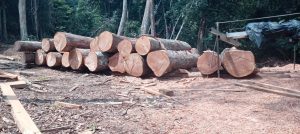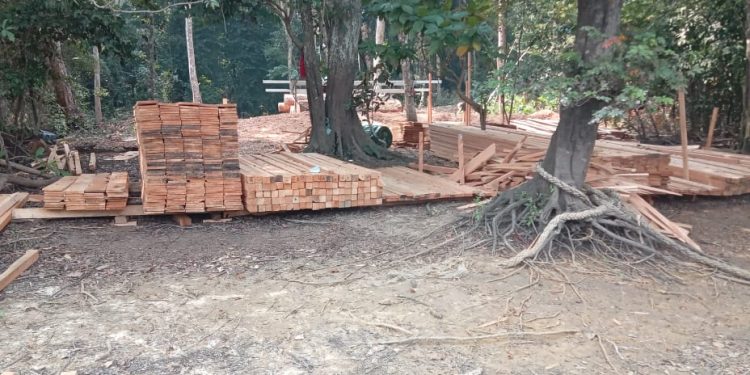
Convicted for illegal logging activities in the Ogooué and Lacs Department, N.A., a member of the Special Delegation for the Departmental Council, has been sentenced to three months suspended imprisonment, fined one million CFA francs, and ordered to pay damages.
Despite the ruling, plaintiffs, supported by local organizations, contest the verdict and plan to appeal.
The Lambaréné Court of First Instance has delivered its ruling in the case against N.A., a member of the Special Delegation of the Departmental Council of Ogooué and Lacs, accused of illegal logging near Lake Oguemoué.
Found guilty of unauthorized tree felling and transportation, N.A. has been sentenced to three months in prison with a suspended sentence, fined one million CFA francs, and ordered to pay 100,000 CFA francs in damages to one of the plaintiffs, F.B. The second plaintiff, S.M., did not seek financial compensation.
This case, brought to court by the Association of Lake Oguemoué Communities (ACLO) and the NGO Conservation Justice (CJ), aimed to denounce the illegal exploitation of natural resources in the region.
According to the plaintiffs, N.A. operated unlawfully, bypassing regulations, and causing significant environmental damage.
Despite the seriousness of the charges, the court dismissed CJ’s request to be considered a civil party and ordered the confiscation of 268 m³ of sawn wood for the benefit of the state. However, N.A. recovered his heavy equipment (a barge, two Caterpillar 528 machines, and a Lucas Mill mobile saw), raising concerns about the possibility of continuing his illegal activities.
The plaintiffs, dissatisfied with what they considered a lenient sentence, announced their intention to appeal. They argue that the community stands to benefit greatly from establishing a Community Forest in the area, a proposal initiated in 2021 but stalled, partly due to N.A.’s opposition.

“The illegal exploitation of forests in this area hinders local development. A Community Forest would serve as an economic catalyst for the entire community while enabling sustainable management of natural resources, as demonstrated by the community’s current fishing management plan,” explained an ACLO representative.
N.A.’s case highlights the ongoing challenges related to illegal logging and the struggle of local communities to implement sustainable management models. Beyond this case, the future of forest management in Gabon hangs in the balance, as the country strives to reconcile resource exploitation with conservation efforts.
Fanta Mabo








